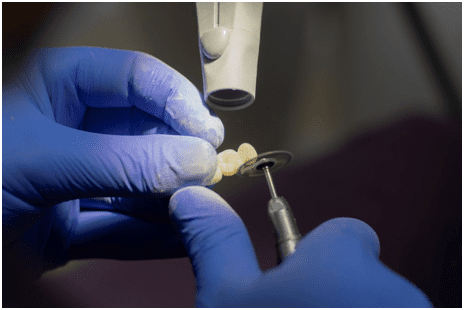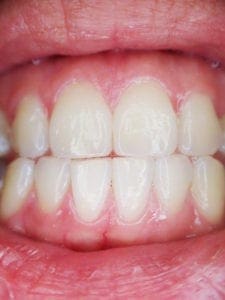You May Soon Be Able to Replace Enamel

You’ve heard it said by your dentist in Asheville you can’t replace your tooth enamel once it’s lost.
Enamel is that shiny, protective coating over your teeth. Enamel does a lot more than just make your teeth shiny. It protects your teeth and their roots from sensitivity, resists decay, and prevents bacteria from reaching your tooth’s nerve. This is commonly why people who begin to lose their enamel experience sensitivity to hot and cold foods, get cavities, and even need root canals.
However, new science from the University of Southern California (USC) shows that one day in the future, you might just be able to replace that enamel. Not with a toothpaste or dental work but with a gel.
Can Enamel Really Be Regrown?
Although your original enamel can’t technically be replaced, researchers at USC including professor of dentistry at the Herman Ostrow School of Dentistry Janet Moradian-Oldak and Sauma Prajapati published a study in Biomaterials about an isolated enzyme she’d discovered in teeth, called matrix metalloproteinase-20, or better known as MMP-20. MMP-20 is released early on in enamel formation and works with other enzymes to aid the body in making enamel.
Understanding how the body forms enamel is a key step in trying to help the body replace it. Although this discovery can’t help the body regrow enamel, it can certainly help it grow a protective layer over your teeth that’s very similar to enamel and can help protect teeth from decay and sensitivity.
How It Works
The hydrogel that USC scientists have created would ideally work by helping the body to form a protective layer over the teeth that accurately mimics enamel in strength and protection. This would help minimize the pain patients experience in tooth decay and further help to protect the teeth from decay.
 The hydrogel hasn’t been approved for use yet and is still in its testing phases. Janet Moradian-Oldak imagines the hydrogel working overnight in a mouth guard or tooth strips to help the body restructure this enamel-like material over your teeth.
The hydrogel hasn’t been approved for use yet and is still in its testing phases. Janet Moradian-Oldak imagines the hydrogel working overnight in a mouth guard or tooth strips to help the body restructure this enamel-like material over your teeth.
Better Than Over-the-Counter (OTC) Products
Although some OTC products aim to reduce the pain sensitivity creates from lack of proper enamel, the hydrogel would tackle the root cause of the problem. OTC products typically focus on providing relief from your symptoms, which usually continue to happen after enamel is lost.
With this solution, the hydrogel would actually help repair spots on the teeth where the enamel has been worn away, therefore helping the body to naturally work against enamel loss rather than experiencing the problems that come once it’s gone.
Protecting Your Enamel
Since the hydrogel that Janet Moradian-Oldak and her team at USC have discovered after nearly twenty years in research isn’t ready to be marketed yet, it’s in your best interest to try and keep your enamel as well as your teeth as healthy as possible since there are currently no FDA-approved replacements.
You can protect your enamel by:
Bushing gently. Remove plaque with a soft-bristled brush. Hard brushing over time can actually remove your enamel and is very damaging to your teeth.
Enjoy sugar in moderation. Sugar and other acidic foods and drinks like candy and soda can wear away your enamel as well since they encourage the growth of bad bacteria and create an acidic pH in the mouth, which leads to erosion of enamel. Gently brush your teeth after eating sugar, or rinse with water if this isn’t possible.
Get regular checkups. Your Asheville dentist, Dr. Saunders, can spot problems with your enamel before you experience any symptoms. This makes getting those regular checkups all the more important!
As the hydrogel goes through clinical trials, people who have tooth decay or enamel erosion may soon experience some relief. In the meantime, protect your enamel and take care of your healthy smile!
